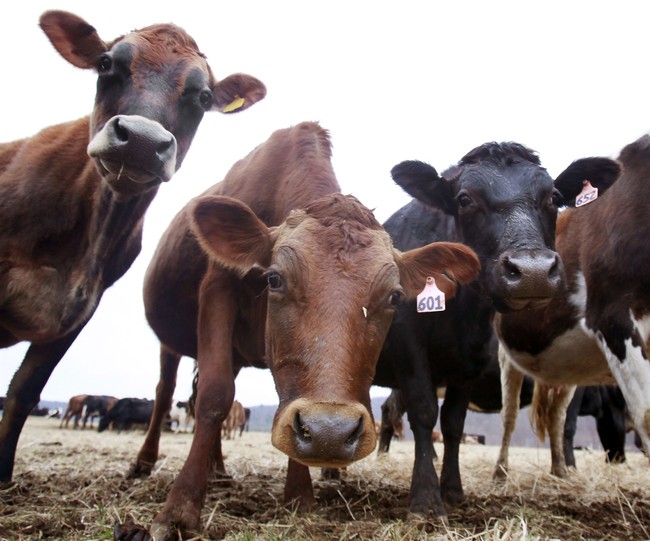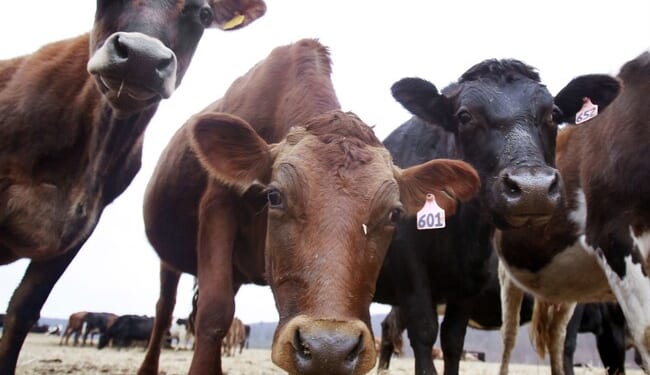
Either the war on beef has taken another ominous step forward or the end of Western civilization is not as dire as we have been led to believe. I suspect a bit of both is true since Boston researchers have decided to devote time and money to creating a cow gas vaccine. And we are talking about $26.5 million being used to decrease the rates of bovine belching and backfiring.
While I find it hard to believe (well, I do believe it; I just can’t believe someone is serious about it), Axios noted that Boston startup ArkeaBio raised the prodigious sum mentioned above via venture capital funding led by none other than Bill Gates. Axios added, “Breakthrough Energy Ventures led the Series A round, and was joined by Grantham Foundation, AgriZeroNZ, Rabo Ventures, Overview Capital, and The51 Food & AgTech Fund.”
Oh, okay, now I believe it. This sounds exactly like the kind of thing with which Gates would involve himself: complicated, expensive, and outlandish. If there was ever a man in need of the ultimate 678,327,455,782-piece Lego set or one of those HO-scale train layouts that take up three floors of a house, it is Bill Gates. Or he could buy himself a fleet of DeLoreans and start researching time travel — anything to keep him occupied and out of the hair of the rest of the world.
The reason someone thinks this is important is because cow emissions reportedly account for 5% of the greenhouse gasses putting the world at risk. Methane, which is a major ingredient in the vapors in question, is much more dangerous than carbon when it comes to keeping in the heat, “although it also dissipates down faster,” according to Axios.
Well, at least we are not to the point that we are actively eliminating the cow population and forcing everyone to paste a smile on their faces as they try to enjoy the savory goodness of a kale burger or a soy steak. Yet.
On a quasi-related note, SW Iowa News said last month that scientists from Australia’s Curtin University have taken it upon themselves to breed cows that burp and fart less than the current models. Lead researcher Merideth Kelliher commented:
Studies have found low-emission cattle have inheritable genetic traits which can significantly reduce methane production if included in national breeding objectives. While more research is needed to identify the best traits for low-emission cows, consideration should also be given to land use emissions and identifying suitable agricultural land for restoration to natural habitat.
Which would you be more comfortable eating: meat from a cow that had been given a gas vaccine or from one that had been genetically modified? If you answered “neither,” I suspect that you are part of the silent majority. However, in this instance, the cows are not silent, which is ostensibly why we need vaccines or genetic modifications.
The Curtin team has also posited improving wastewater management at beef plants, which might involve using ozonated water to remove impurities. Other strategies that sound a bit more ominous include finding ways to help cows mature faster and changing their diet so that they eat less grass and more legumes, seaweed, and “other compounds.”

